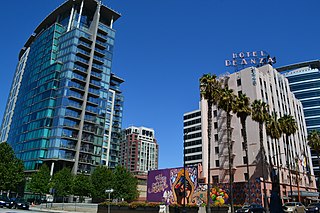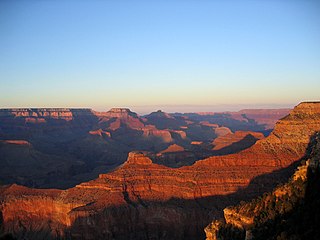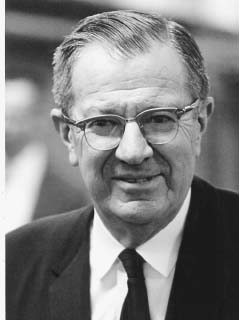
California is a state in the Western United States, located along the Pacific Coast. With nearly 39.2 million residents across a total area of approximately 163,696 square miles (423,970 km2), it is the most populous U.S. state and the third-largest by area. It is also the most populated subnational entity in North America and the 34th most populous in the world. The Greater Los Angeles and San Francisco Bay areas are the nation's second and fifth most populous urban regions respectively, with the former having more than 18.7 million residents and the latter having over 9.6 million. Sacramento is the state's capital, while Los Angeles is the most populous city in the state and the second most populous city in the country. San Francisco is the second most densely populated major city in the country. Los Angeles County is the country's most populous, while San Bernardino County is the largest county by area in the country. California borders Oregon to the north, Nevada and Arizona to the east, the Mexican state of Baja California to the south; and it has a coastline along the Pacific Ocean to the west.

The Ivy League is an American collegiate athletic conference comprising eight private research universities in the Northeastern United States. The term Ivy League is typically used beyond the sports context to refer to the eight schools as a group of elite colleges with connotations of academic excellence, selectivity in admissions, and social elitism. Its members are Brown University, Columbia University, Cornell University, Dartmouth College, Harvard University, Princeton University, University of Pennsylvania, and Yale University.

Silicon Valley is a region in Northern California that serves as a global center for high technology and innovation. Located in the southern part of the San Francisco Bay Area, it corresponds roughly to the geographical area of Santa Clara Valley. San Jose is Silicon Valley's largest city, the third-largest in California, and the tenth-largest in the United States; other major Silicon Valley cities include Sunnyvale, Santa Clara, Redwood City, Mountain View, Palo Alto, Menlo Park, and Cupertino. The San Jose Metropolitan Area has the third-highest GDP per capita in the world, according to the Brookings Institution, and, as of June 2021, has the highest percentage of homes valued at $1 million or more in the United States.

Robert Endre Tarjan is an American computer scientist and mathematician. He is the discoverer of several graph algorithms, including Tarjan's strongly connected components algorithm, and co-inventor of both splay trees and Fibonacci heaps. Tarjan is currently the James S. McDonnell Distinguished University Professor of Computer Science at Princeton University.

San Jose, officially the City of San José, is a major city in the U.S. state of California and the cultural, financial, and political center of Silicon Valley and largest city in Northern California by both population and area. With a 2020 population of 1,013,240, it is the most populous city in both the Bay Area and the San Jose–San Francisco–Oakland Combined Statistical Area, which has a 2015 population of 7.7 million and 9.7 million people respectively, the third most populous city in California, and the tenth-most populous in the United States. Located in the center of the Santa Clara Valley on the southern shore of San Francisco Bay, San Jose covers an area of 179.97 sq mi (466.1 km2). San Jose is the county seat of Santa Clara County and the main component of the San Jose–Sunnyvale–Santa Clara Metropolitan Statistical Area, with an estimated population of around two million residents in 2018.

Northern California is a geographic and cultural region that generally comprises the northern portion of the U.S. state of California. Spanning the state's northernmost 48 counties, its main population centers include the San Francisco Bay Area, the Greater Sacramento area, the Redding, California, area south of the Cascade Range, and the Metropolitan Fresno area. Northern California also contains redwood forests, along with most of the Sierra Nevada, including Yosemite Valley and part of Lake Tahoe, Mount Shasta, and most of the Central Valley, one of the world's most productive agricultural regions.

The Western United States is the region comprising the westernmost states of the United States. As American settlement in the U.S. expanded westward, the meaning of the term the West changed. Before around 1800, the crest of the Appalachian Mountains was seen as the western frontier. The frontier moved westward and eventually the lands west of the Mississippi River were considered the West.

Stephen Jay Greenblatt is an American Shakespearean, literary historian, and author. He has served as the John Cogan University Professor of the Humanities at Harvard University since 2000. Greenblatt is the general editor of The Norton Shakespeare (2015) and the general editor and a contributor to The Norton Anthology of English Literature.

The Santa Clara Valley is a geologic trough in Northern California that extends 90 miles (140 km) south–southeast from San Francisco to Hollister. The longitudinal valley is bordered on the west by the Santa Cruz Mountains and on the east by the Diablo Range; the two coastal ranges meet south of Hollister. The San Francisco Bay borders the valley to the north, and fills much of the northern third of the valley. The valley floor is an alluvial plain that formed in the graben between the San Andreas Fault to the west and the Hayward and Calaveras faults to the east. Within the valley and surrounding the bay on three sides are the urban communities of San Mateo County, Santa Clara County, and Alameda County, while the narrow southern reaches of the valley extend into rural San Benito County to Hollister. In practical terms, the central portion of the Santa Clara Valley is often considered by itself, contained entirely within Santa Clara County.

Frederick Emmons Terman was an American professor and academic administrator. He was the dean of the school of engineering from 1944 to 1958 and provost from 1955 to 1965 at Stanford University. He is widely credited as being the father of Silicon Valley.

Mexican American history, or the history of American residents of Mexican descent, largely begins after the annexation of Northern Mexico in 1848, when the nearly 80,000 Mexican citizens of California, Nevada, Utah, Arizona, Colorado, and New Mexico became U.S. citizens. Large-scale migration increased the U.S.' Mexican population during the 1910s, as refugees fled the economic devastation and violence of Mexico's high-casualty revolution and civil war. Until the mid-20th century, most Mexican Americans lived within a few hundred miles of the border, although some resettled along rail lines from the Southwest into the Midwest.

Mendez, et al v. Westminister [sic] School District of Orange County, et al, 64 F.Supp. 544, aff'd, 161 F.2d 774, was a 1947 federal court case that challenged Mexican remedial schools in four districts in Orange County, California. In its ruling, the United States Court of Appeals for the Ninth Circuit, in an en banc decision, held that the forced segregation of Mexican American students into separate "Mexican schools" was unconstitutional because as US District Court Judge Paul J. McCormick stated, "The evidence clearly shows that Spanish-speaking children are retarded in learning English by lack of exposure to its use because of segregation, and that commingling of the entire student body instills and develops a common cultural attitude among the school children which is imperative for the perpetuation of American institutions and ideals." The Judge further ruled that, "The equal protection of the laws pertaining to the public school system in California is not provided by furnishing in separate schools the same technical facilities, textbooks and courses of instruction to children of Mexican ancestry that are available to the other public school children regardless of their ancestry. A paramount requisite in the American system of public education is social equality. It must be open to all children by unified school association regardless of lineage."

David William Blight is the Sterling Professor of History, of African American Studies, and of American Studies and Director of the Gilder Lehrman Center for the Study of Slavery, Resistance, and Abolition at Yale University. Previously, Blight was a professor of History at Amherst College, where he taught for 13 years. He has won several awards, including the Bancroft Prize and Frederick Douglass Prize for Race and Reunion: The Civil War in American Memory, and the Pulitzer Prize and Lincoln Prize for Frederick Douglass: Prophet of Freedom. In 2021 he was elected to the American Philosophical Society.
California is the most populated U.S. state, with an estimated population of 39.2 million as of January 1, 2022. It has people from a wide variety of ethnic, racial, national, and religious backgrounds.
Santa Clara County, California, is one of California's original counties, with prior habitation dating from prehistory to the Alta California period.
Joseph Morgan Kousser is an American historian. He is a professor of history and social sciences at the California Institute of Technology.

EF Education–TIBCO–SVB is a women's professional cycling team based in the United States that competes in elite road bicycle racing. The team's main sponsors are TIBCO Software, Silicon Valley Bank and EF Education First. The owner is Linda Jackson, a former professional cyclist.
Mark D. Steinberg is a historian, writer, and professor. He taught at Harvard University, Yale University, and the University of Illinois, Urbana-Champaign, from which he retired in 2021. He is the author of many books and articles on Russian history. He remains active as an author and advisor.

The Conquest of California, also known as the Conquest of Alta California or the California Campaign, was an important military campaign of the Mexican–American War carried out by the United States in Alta California, then a part of Mexico. The conquest lasted from 1846 into 1847, until military leaders from both the Californios and Americans signed the Treaty of Cahuenga, which ended the conflict in California.
Sofia Mendoza was an activist and social organizer, most active in San Jose, California, who co-founded the United People Arriba organization alongside her husband, as well as the Community Alert Patrol (CAP). Her efforts focused around issues of education, police brutality, healthcare, and housing, particularly in the community of East San Jose.













